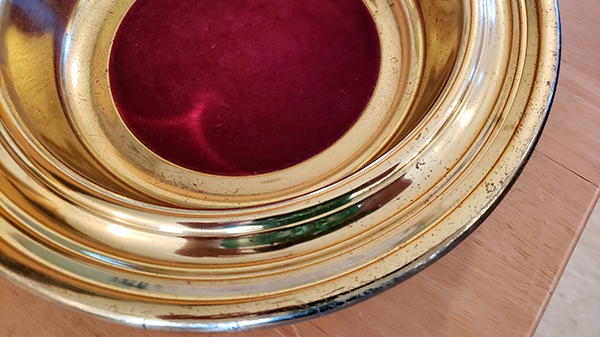After more than 30 years of working alongside state legislators, Dan Ireland said he was disappointed with the outcome of the two-month long federal corruption trial that ended Aug. 11.
But Ireland, director emeritus of Alabama Citizens Action Program (ALCAP), also said the issue isn’t over and that some positives did come out of the trial.
What began as an FBI investigation in 2010 surrounding a potential vote-buying scheme related to electronic bingo gambling legislation (Senate Bill 380) ended with no guilty verdicts.
Twelve businessmen, lobbyists, legislators and others, including the state’s top gambling magnate Milton McGregor, were indicted in 2010. Three of those eventually pleaded guilty: lobbyists Jennifer Pouncy and Jarrod Massey and Country Crossing developer Ronnie Gilley. The remaining nine became defendants in the trial that began June 6. When the trial ended, no guilty verdicts were handed down, two defendants were acquitted and several charges were left with a hung jury.
“I was disappointed that there wasn’t more of a positive in the charges,” Ireland said the morning after the verdicts were read. “I was surprised there were no more convictions than they showed.”
But he wasn’t surprised by the indictments.
“I’ve seen that kind of thing going on for a good while,” Ireland said, noting he believes there will be another trial to deal with the remaining charges that were ruled a mistrial. More indictments surrounding the case could also be coming, he added.
“If the evidence is there, I hope the FBI will do its homework and present a better case in a better way (for the next trial),” Ireland said. “I think they made a feeble effort at presenting their case.
“The defense made a good point that whoever makes donations to campaigns are pretty sure those legislators are going to be with them on legislative issues. That’s not just with gambling; that’s on any issue,” he explained. “The defesne also said that a company or person is going to support a person who will vote their way, and I believe they are right about that.
“Companies are not going down there and supporting legislators who vote against their interest,” he said. But Alabama’s previous “business as usual” approach to supporting candidates who support one’s agenda made it difficult to know the difference between making a large contribution and buying a vote, Ireland said.
“It’s the way things have operated until this year … but it was important to plug that leak,” he said, noting the new ethics laws passed by the Legislature in December are a direct result of the corruption indictments.
“If there’s any good in what has been done … I think it helped to encourage a tougher ethics law in the state of Alabama,” Ireland said. “The new ethics laws have put a little bit of a tighter noose around [questionable contributions]. … It is going to be more difficult to make sumptuous donations to candidates.
“Had the new ethics laws been in place five years ago, we would not have had such a free flow of money as we did in 2009 and 2010,” he said, noting the ethics laws will need to be reviewed and adjusted frequently because the people involved in channeling money to legislators for votes will find another way to do it.
“You would think that people who are elected by the people would have an ethical character that you could trust them but that is not true,” Ireland said. “That’s why you have to have these ethics laws.”
The original announcement of the FBI investigation had another positive outcome, he said. “It was a factor in defeating the major gambling bill (SB 380) in 2010.
“And this year, there was no hint of a gambling bill coming up. It is the first time in at least 30 years that I can remember a gambling bill was not introduced,” he said. “The trial has been a factor in changing some of the views that people have about accepting money. Plus they have limitations now that they didn’t have before.
“What happened (with the indictments and trial) in Montgomery is a way to open [the way the Legislature operates] up,” Ireland said. “The trial and accusations were issues that needed to be aired out publically, and people needed to know what’s going on down there.
“I hope that this court case is a wake-up call to all of Alabama — to the people, that they need to be involved … and to candidates … that they are a servant to the public and not a servant to special interest groups.”
Special interest groups garnered a tremendous amount of power in the past because “the way it was set up, someone could donate to campaigns and switch it around from pac to pac where you couldn’t trace it back,” Ireland said.
“You were making a campaign contribution, and that’s different from buying a vote. … Making contributions is not illegal. … But (in some cases), the difference is only terminology.”
(TAB)





Share with others: